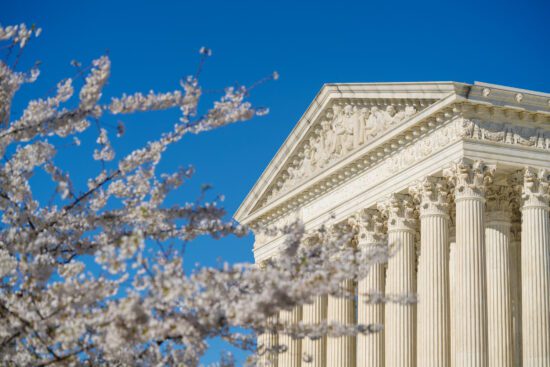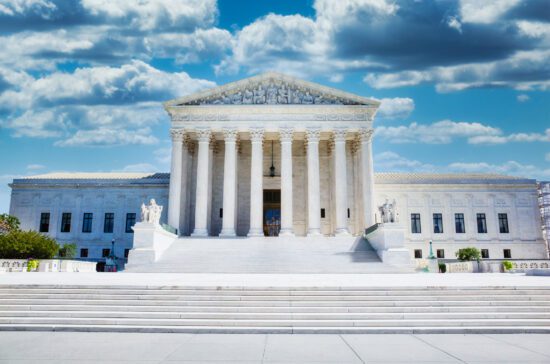On Dec. 4, 2024, the Supreme Court heard oral arguments in the case United States v. Skrmetti, a lawsuit joined by the Biden administration against a Tennessee law prohibiting all procedures or interventions intended to “affirm” a gender inconsistent with a minor’s biological sex.
Southern Baptists have been unequivocally clear about the dangers of gender ideology and the devastating effects it has on children. The ERLC filed a brief in the case alongside the Tennessee Baptist Mission Board, rooted in resolutions passed at the annual Southern Baptist Convention and the Baptist Faith and Message 2000, expressing why the court must protect children and uphold Tennessee’s law.
What is this Tennessee “gender transition” case about?
The Tennessee State Legislature passed Senate Bill 1 (S.B. 1) on March 1, 2023. The law prevents healthcare providers from offering prescriptions or performing procedures on minors with the intent to “transition” to an identity opposite of their biological sex. The bill prohibits any procedure for the purpose of:
- “Enabling a minor to identify with, or live as, a purported identity inconsistent with the minor’s sex;
- Treating purported discomfort or distress from a discordance between the minor’s sex and asserted identity.”
Additionally, the new law also required doctors to cease all current gender procedures on minors by March 31, 2024.
To learn more about United States v. Skrmetti, read the ERLC explainer.
What arguments were made in the oral arguments?
United States Solicitor General Elizabeth Prelogar and American Civil Liberties Union (ACLU) argued by “transgender” ACLU attorney, Chase Strangio:
- Prelogar and Strangio argued the Tennessee law is unconstitutional under the Equal Protection Clause because it was a form of “sex-based” discrimination.
- The Biden administration also argued that the law cuts parents and doctors out of the decision-making process.
- Prelogar also incorrectly stated that “puberty blockers are just ‘pressing pause’” on puberty and, as such, argued that such prescriptions should not be treated as if it could cause lasting harm to a child.
State of Tennessee, argued by Tennessee Solicitor General J. Matthew Rice:
- Rice argued that the Constitution does not prohibit states from deciding which medical treatments are safe and appropriate for minors in its state.
- Additionally, he argued that this law was not sex-based discrimination as it did not limit a child’s access to certain medical interventions because of their sex but rather because of the medical purpose of such intervention.
- This law protects minors, for whom “gender transitions” in childhood cause lasting harm and irreversible harm to their bodies.
Currently, 25 states have laws in effect (New Hampshire will be the 26th state on Jan. 1, 2025) that prohibit doctors from performing these dangerous surgeries and procedures on minors. However, many of these laws are currently undergoing litigation, and the outcome of Skrmetti will determine if they can remain in place.
This case will likely be influenced by the Supreme Court’s problematic ruling in Bostock v. Clayton County, where the court ruled that the definition of “sex” under Title VII of the Civil Rights Act includes sexual orientation and gender identity. Skrmetti presents a new opportunity for the court to clarify the extent of the Bostock ruling or limit its scope.
As ERLC President Brent Leatherwood commented:
Today’s oral arguments highlighted exactly why Tennessee’s law is so needed. As Tennessee’s solicitor general pointed out, these novel and experimental treatments often leave children infertile and with permanently damaged bodies. Given those harmful effects, it is not only entirely appropriate, but constitutionally permissible, for the state to intervene to protect these vulnerable minors. They need care and compassion, not a radical remaking of their bodies. While one can never draw a direct line from the questioning of the justices to the ultimate result, it was evident to everyone in the courtroom that a majority of the court was skeptical of the U.S. government’s arguments. Tennessee’s law is good and just—and the Supreme Court should not hesitate to turn back this challenge from the ACLU and the Biden administration.
A decision in this landmark case is expected in June 2025.
Why does this Tennessee “gender transition” case matter to Southern Baptists?
Southern Baptists desire to see children protected from the ideological agenda of the sexual revolution intending to separate them from God’s good design for their lives. Southern Baptists have explicitly expressed their condemnation of the “harmful and often irreversible ‘gender transition’ experiments on vulnerable minors and young adults” (2023 resolution “On Opposing “Gender Transitions”). Furthermore, Southern Baptists called upon legislatures to enact laws like Tennessee’s S.B. 1 to protect children from exploitation and safeguard parental rights.
The ERLC has been advocating against disastrous gender ideology legislation across multiple fronts in Congress, federal rulemaking, and the courts. As the Supreme Court considers this case, the ERLC will monitor and advocate for these laws to be upheld to best ensure that vulnerable children are protected from the lasting damage caused by harmful gender ideology.











